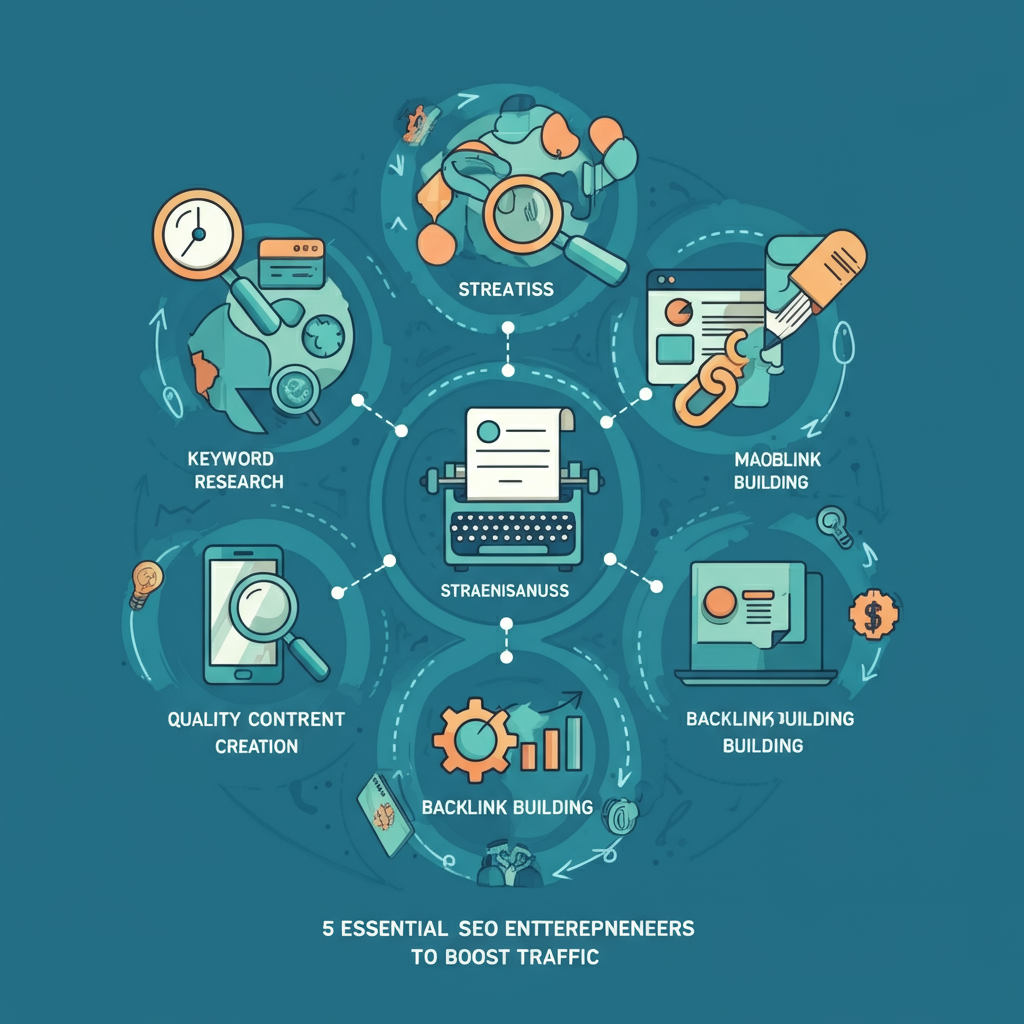Whether you aspire to expand your business’s online presence or simply level up your digital marketing expertise, search engine optimization (SEO) is the essential skill you need. SEO is the backbone of online visibility, driving organic traffic and boosting brand credibility.
This article is your ultimate guide to understanding and implementing SEO strategies as a beginner. From grasping the fundamentals to applying on-page, off-page, and technical strategies, you’ll gain practical insights to help your website dominate search engine results pages (SERPs).
What is SEO
Defining SEO
SEO, or search engine optimization, is the process of improving your website’s visibility in organic (non-paid) search engine results. Essentially, it’s about ensuring your website ranks high on search engines like Google when users search for keywords relevant to your business.
How Search Engines Work
Search engines like Google, Bing, and Yahoo use automated bots to crawl the web, indexing pages to match search queries. These pages are then ranked based on algorithms that evaluate relevance, quality, and user experience.
Goals of SEO
The ultimate goal of SEO is to attract organic traffic to your website. Unlike paid ads, organic traffic grows sustainably, making SEO an invaluable long-term investment for businesses.
Why is SEO Important for Entrepreneurs
Driving Targeted Traffic
SEO allows entrepreneurs to reach their target audience by aligning their content with user intent and search queries. This means you’re not only increasing traffic but also attracting visitors who are already interested in your products or services.
Building Brand Credibility
Websites that rank high on Google are often perceived as more trustworthy. SEO helps establish your brand as a leader in your industry by showcasing high-quality and accurate content.
Saving Costs
Compared to expensive ad campaigns, SEO is a cost-effective way to grow organically. While it requires time and effort upfront, the long-term returns are unmatched.
Real-Life Example
Consider a small e-commerce startup selling sustainable home goods. By focusing on keywords like “eco-friendly kitchenware” and optimizing its content, the startup began ranking organically on Google, reducing its reliance on costly PPC ads and doubling its sales revenue in under six months.
Understanding Search Engine Algorithms

How Algorithms Work
Search engines use algorithms to determine the most relevant and high-quality content to display for any given query. These algorithms evaluate thousands of factors to rank pages.
Key Ranking Factors
- Relevance: Ensure your content matches the user’s search intent.
- Authority: High-quality backlinks from credible sources boost your domain authority.
- User Experience: Fast-loading pages, mobile-friendly design, and intuitive navigation improve rankings.
Quick Optimization Tips
- Conduct thorough keyword research.
- Use headings and subheadings to structure content for readability.
- Optimize images with alt text and compressed file sizes for faster loading.
Keyword Research Finding the Right Keywords
What is Keyword Research?
Keyword research is the process of identifying words and phrases your target audience is searching for. This helps you tailor your content to match user intent.
Tools and Techniques
- Google Keyword Planner (free): Great for discovering search volume and competition.
- Ahrefs/SEMRush (paid): Comprehensive research tools for competitive analysis.
- AnswerThePublic (free): Uncover the questions people are asking about a topic.
Tips for Selecting Keywords
- Focus on long-tail keywords for less competition and higher conversion rates.
- Analyze your competitors’ successful keywords.
- Prioritize keywords with moderate competition and high search intent.
On Page Optimization Optimizing Your Website Content
Elements of On Page Optimization
- Title Tags: Include primary keywords to improve click-through rates.
- Meta Descriptions: Provide a concise summary with targeted keywords.
- Header Tags (H1–H3): Structure content neatly for readability.
Tips for High Quality Content
- Write engaging, value-packed content for readers.
- Include keywords naturally to avoid “keyword stuffing.”
- Focus on readability by using short paragraphs and bullet points.
Off Page Optimization Building Authority and Reputation
What is Off Page Optimization?
Off-page SEO involves activities outside your website that improve its trustworthiness and prominence.
Effective Link Building Strategies
- Guest Blogging: Contribute to popular blogs in your niche and earn backlinks.
- Social Media Promotion: Share your content on platforms like LinkedIn and Twitter.
- Networking: Collaborate with influencers or partners to gain visibility.
Pro Tip
Always focus on obtaining backlinks from high-authority sites. Quality outweighs quantity.
Technical SEO Ensuring Your Website is Crawlable and Indexable

Key Technical Factors
- Site Speed: Pages should load in 3 seconds or less.
- Mobile Friendliness: Ensure responsive design for all screen sizes.
- Site Structure: Use sitemaps, clear URLs, and proper internal linking to improve navigation.
Quick Improvements
- Use tools like Google PageSpeed Insights to identify performance issues.
- Compress multimedia files to reduce load time.
- Regularly audit your site with tools like Screaming Frog.
Measuring Your SEO Success
Key Metrics to Follow
- Organic Traffic: Measure the number of visitors from search engines.
- Keyword Rankings: Track how your selected keywords perform.
- Conversion Rates: Analyze how effectively your site converts traffic into leads or sales.
SEO Tracking Tools
- Google Analytics: Tracks user behavior and traffic sources.
- Google Search Console: Monitors website health and keyword performance.
- Ahrefs (paid): Offers comprehensive SEO analytics for keywords and backlinks.
Pro Tip
Regularly update your strategy based on your data insights. SEO is an ongoing process.
SEO Strategies for Entrepreneurs
Develop High Quality Content
Focus on crafting content that answers your audience’s key questions, solves their problems, and adds value to their lives.
Optimize for Search Engines
Implement the strategies outlined above—use relevant keywords, optimize tags, and build backlinks.
Promote Your Content
Use social media marketing, email newsletters, and industry partnerships to amplify your reach.
Take Control of Your SEO
SEO is not a one-time task but an ongoing investment. Entrepreneurs and marketers who prioritize it can expect sustainable growth, deeper customer engagement, and improved revenues.
Start implementing these strategies today and watch your website climb the ranks. Have questions or want to learn more? Check out our other SEO resources for beginners to keep going on your optimization journey.


